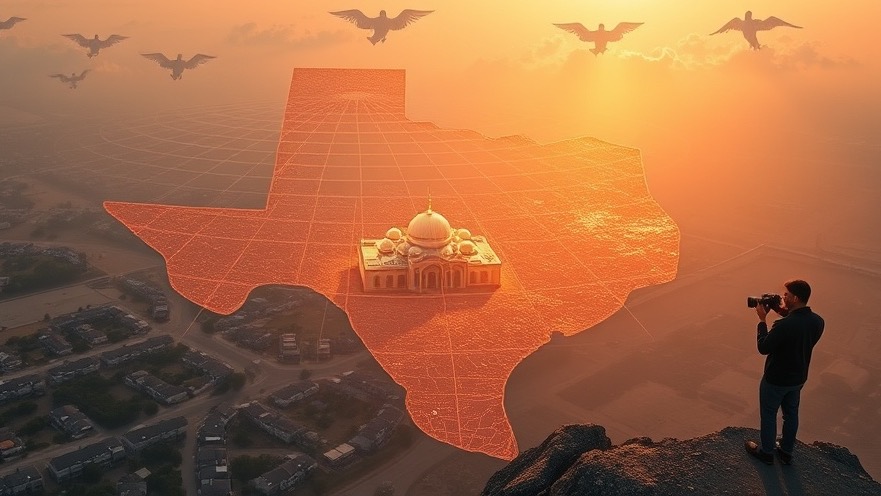
Radical Islam's Presence in Texas and Its Implications
The recent revelations about radical Islam's infiltration in Texas have sparked concern among faith-driven communities. In a deep dive into the murky waters of mid-20th century ideologies, Nate Schutz asserts that radical Islam advocates for violence, jihad, and the subjugation of Western values. This perspective raises alarms particularly for spirit-filled Christians and those engaged in vigilant prayer and intercession.
In 'Radical Islam in Texas? Hiding in Plain Sight', the discussion dives into the alarming presence of radical Islam in the state, exploring key insights that sparked deeper analysis on our end.
The Example of Tablihi Jamaat
A pivotal aspect of this narrative involves Tablihi Jamaat, an al-Qaeda recruitment network that has allegedly established its U.S. operations in Garland, Texas. Despite being flagged multiple times by intelligence agencies, this group operates with little scrutiny and boasts of its activities through promotional videos aimed at recruiting individuals. This situation underscores a significant breakdown in national security that many believe is intentional, and it touches upon the fears of a broader cultural invasion.
A Catalyst for Spiritual Warfare
For many prophetic believers and revivalists, these developments are more than just an issue of national security—they are seen as a call to action. With leaders like Lance Wallnau emphasizing the importance of understanding such occurrences through a biblical lens, the responsibility of Christians to stand firm in their faith and engage in spiritual warfare becomes all the more critical. The need for prayer and revival among communities that cherish freedom and Christian values is essential.
Contextualizing the Fear with Real-Life Events
The tragic San Bernardino attack serves as a stark reminder of the potential reality that radical ideologies harbor. The couple responsible for this attack were not just isolated incidents; they symbolize larger networks that aim to undermine the very fabric of American culture. This historical context provides a sobering lens through which believers must view current events.
In conclusion, the conversation surrounding radical Islam in Texas poses an urgent matter for Christians today. It calls upon them to be vigilant, to engage in prayer, and to support efforts that reinforce American cultural values. Everything from street names to local communities could change if this infiltration goes unchecked. As believers, the unity in prayer and action becomes paramount.
To explore more about how faith intersects with sociopolitical dynamics, consider subscribing to our updates as we delve into the complexities of faith, prophecy, and modern issues.
 Add Row
Add Row  Add
Add 




Write A Comment